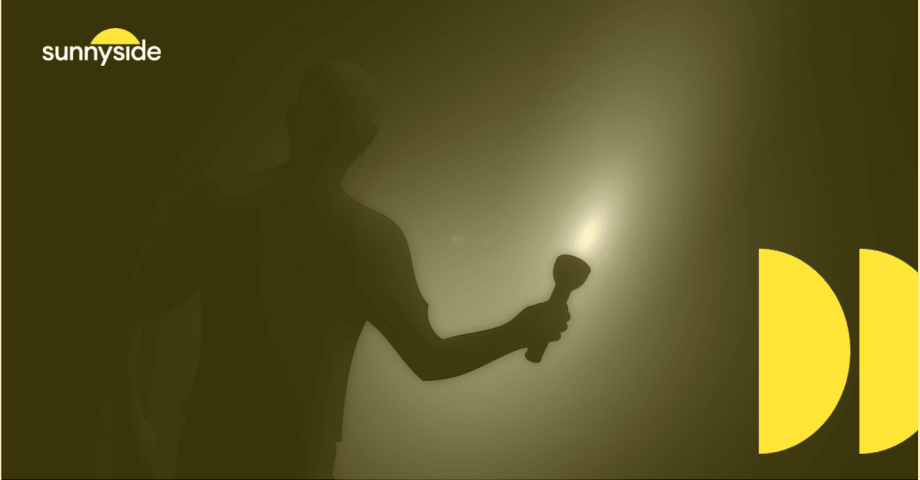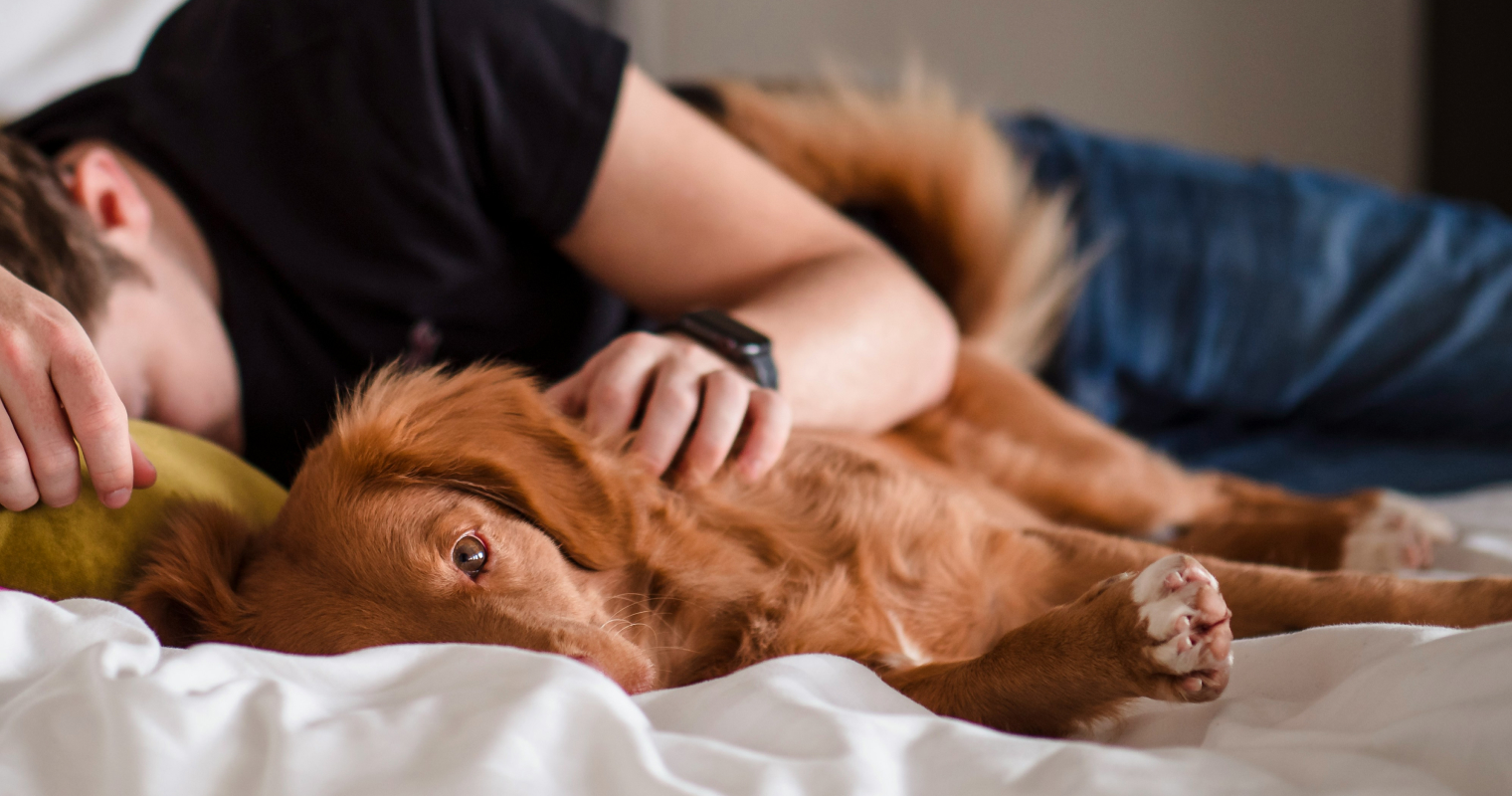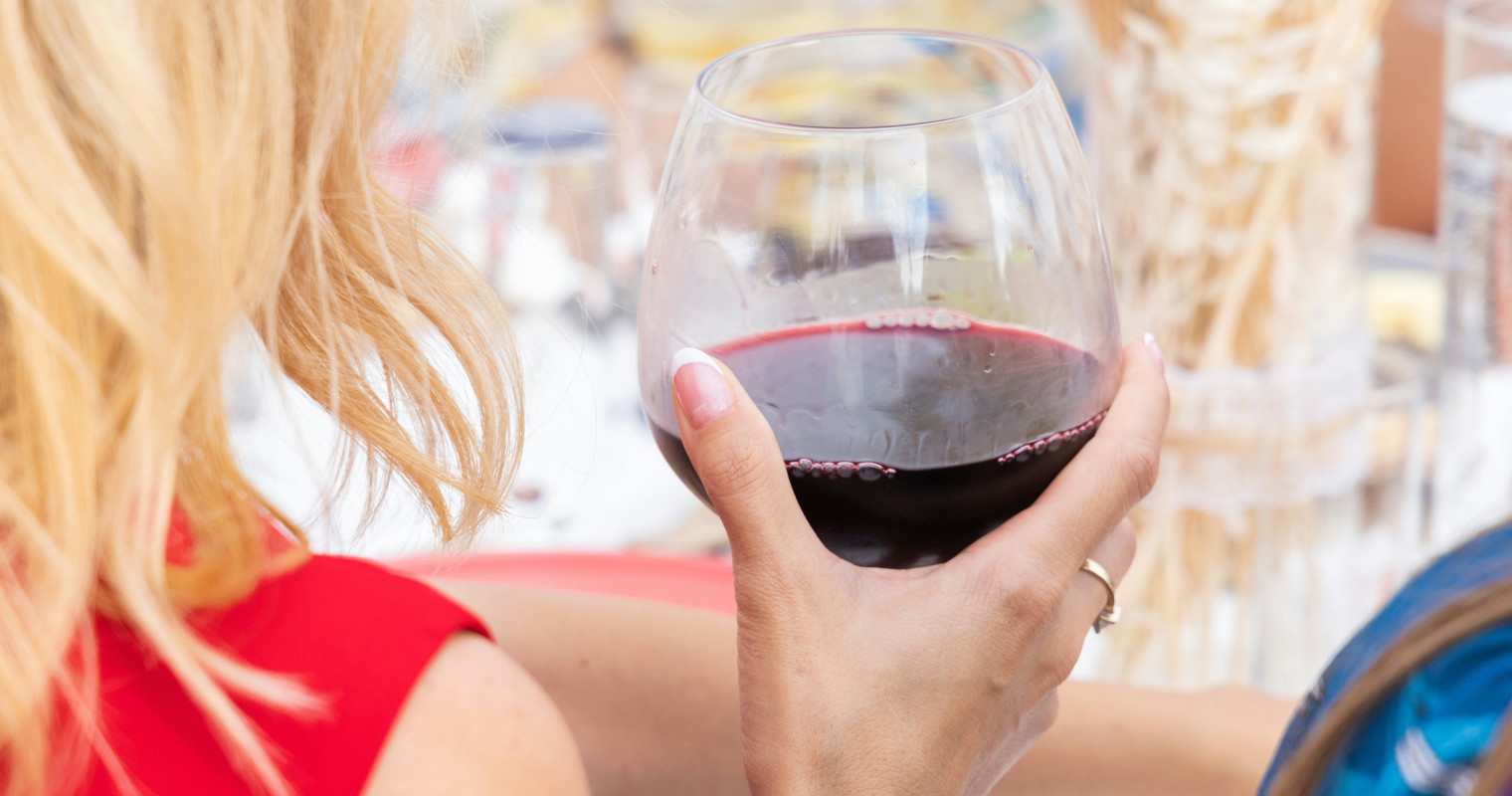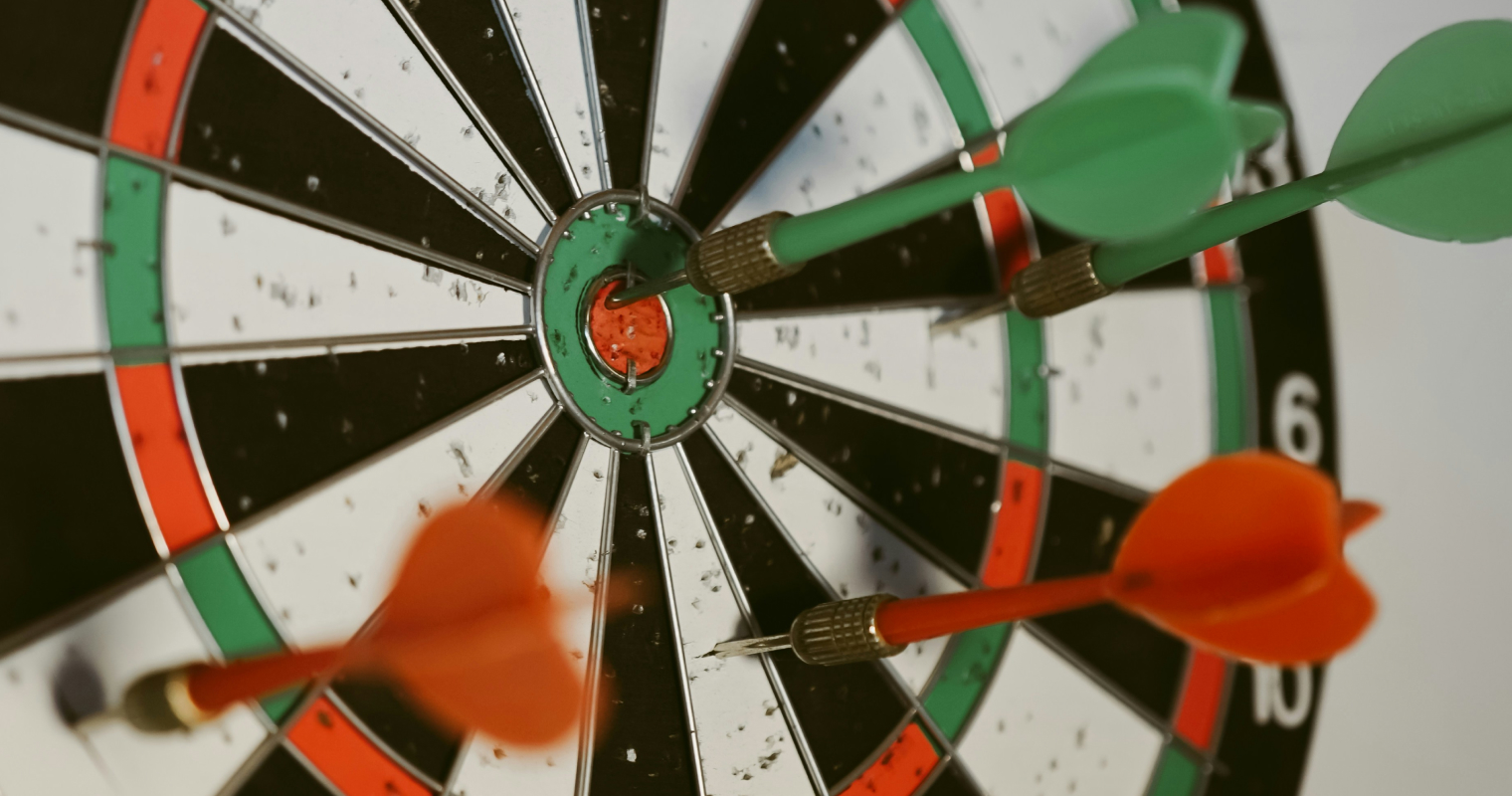Last Updated on November 7, 2023
You’re out celebrating with a group of your best buddies. One moment you’re enjoying a couple of drinks and dancing to your favorite tunes. And the next, you’re waking up feeling groggy with not much recollection of what happened the night before.
Has this happened to you or someone you know?
Alcohol-induced blackouts can be quite an alarming experience. They’re also a rather common occurrence, even among social drinkers. In fact, one study suggests that almost 50% of college drinkers have experienced one or more blackouts at some point in their lives [1].
In this article, we’ll explore what defines an alcohol blackout, how it happens, and some mindful drinking tips to help you enjoy night outs with friends while minimizing your risk of one.
What is an Alcohol Blackout?
An alcohol blackout is a temporary phenomenon where a person experiences gaps in their memory after drinking.
A blackout can happen in two different ways.
Firstly, you may have some memories of what happened, but these recollections are fragmented and missing certain parts. In other words, trying to recall previous events might feel like watching a scene through a camera that flickers on and off. It may also be possible for you to recall some of the missing pieces you initially forgot. This is known as a “fragmentary blackout.” [2]
There’s also the en bloc blackout. This type of blackout involves losing all recollection of the events that transpired after you had too much alcohol. You won’t remember any details of what happened after drinking, even with cues and prompts from friends or looking at videos and photos taken during the night [2].
An alcohol blackout isn’t the same thing as passing out after drinking. While passing out refers to losing consciousness after drinking, people who blackout are still awake and conscious.
They could be moving around, chatting, dancing, and seemingly fine to everyone else. But they’ll wake up in the morning with fuzzy, grayed-out memories of what had happened the night before.
Get control over your drinkingWhat Causes an Alcohol Blackout?
Drinking too much is one of the main causes of an alcohol blackout. But the amount of alcohol you drink isn’t the only factor contributing to a blackout. Gulping down drinks or drinking on an empty stomach may also contribute to a speedy increase in blood alcohol concentration (BAC) [2].
Essentially, drinking patterns that cause the concentration of alcohol in your bloodstream to rise rapidly will significantly increase your chances of experiencing a blackout. This is why binge drinking—which refers to having five or more drinks on any one occasion for men or four or more drinks for women—is often linked to blackouts [2].
Because your tolerance and body’s ability to process and eliminate alcohol may differ from someone else’s, it can be tricky to know exactly how much alcohol it takes for a blackout to happen. But guidelines like the above can paint a clearer picture of where the line is and help us better understand what drinking practices are less likely to cause a blackout.
How Does Alcohol Affect Memory and the Brain?
Though the exact impact of alcohol on different areas of the brain isn’t fully understood, scientists suggest that alcohol can disrupt the activities that happen in the hippocampus [2]. This part of the brain plays a crucial role in memory and helps individuals recall specific personal experiences [3].
This could explain why alcohol can affect your ability to form new long-term memories [2].
However, alcohol does not only impact the functioning of the hippocampus. Some research has looked into the effects of alcohol on the frontal lobe of the brain.
Scientists found that alcohol may disrupt how well the frontal lobe handles tasks associated with decision-making, impulse control, and planning. This could account for certain behaviors related to an alcohol blackout, such as poor impulse control and making decisions you wouldn’t under normal circumstances. The frontal lobe may also be involved in the formation of memories [2].
8 Tips to Avoid an Alcohol Blackout
The dangers of an alcohol blackout lie in doing something you might regret later on—like driving, texting an ex-lover, or having unprotected sex.
Of course, there isn’t anything wrong with enjoying a couple of drinks with friends. But what’s crucial is being aware of how much alcohol you drink and its effects on your body.
This is where mindful drinking comes into the picture. Mindful drinking is a conscious practice that encourages us to explore our relationship with alcohol. You’ll assess your current habits and implement self-regulatory strategies to help you manage how much and how quickly you drink.
Essentially, mindful drinking will encourage you to build healthier drinking practices without having to give up alcohol for good.
Here are some mindful drinking practices and tips for avoiding a blackout the next time you drink.
#1. Set a drinking limit before heading out.
It’s important to have a limit to commit to. If you aren’t sure, you can start with guidelines that are already in place.
For instance, the National Institute on Alcohol Abuse and Alcoholism (NIAAA) has defined lower-risk drinking as having not more than four drinks in a day for men and not having more than three drinks in a day for women [4].
For extra accountability, you can let your bartender or friends know your limit, so they can prevent you from ordering more than you’d initially planned.
#2. Track your drinking throughout the event.
Drink-tracking is another valuable tool that can help you keep tabs on exactly how many drinks you’ve had, especially when you’re having fun. This is one of the most accurate ways to know whether you’re sticking to the limits you’ve set for yourself.
You can do this using various methods, like making a digital note each time you order a drink. Alternatively, you may use the Sunnyside mindful drinking app, which offers drink-tracking tools and reminders to make this process a breeze.
#3. Set a timer on your phone to limit yourself to a drink an hour.
Drinking too quickly is one main factor that can contribute to alcohol-related blackouts.
When you’re doing rounds with your friends, it’s easy to go with the flow and follow the crowd’s pace. But doing so could lead to a rapid rise in BAC and increase your risk of blacking out.
A simple rule of thumb is to set your phone up with reminders and alarms that will go off every hour, signaling when it’s okay to get sipping on your next drink.
You can also do some simple calculations to determine what intervals to set these reminders for. If you’re going to be at the party for about five hours and your limit is three drinks for the night, a reasonable interval would be every 100 minutes or so.
#4. Alternate between water and alcoholic drinks.
This is another brilliant tip to help you pace yourself through the night. After enjoying an alcoholic drink, you can order a glass of water or juice before moving on to your next boozy beverage.
Alternating your drinks also helps you stay well-hydrated throughout the night. And this can dampen the diuretic effects of alcohol on your body [5].
#5. Avoid drinking on an empty stomach.
It’s always best to fill your stomach before heading to the bar. When you drink on an empty stomach, alcohol diffuses more quickly into your small intestines before moving into your bloodstream.
The food in your stomach, especially carbohydrates, will act as some sort of buffer to slow down the absorption of alcohol into your bloodstream [6].
Of course, having a meal before drinking doesn’t necessarily mean you will be able to drink more. But it can lower your risk of an alcohol blackout by slowing down the increase in BAC when you drink.
#6. Opt for lower-alcohol alternatives.
Ask your bartender to create a lower-alcohol variation of your favorite cocktail. Alternatively, you could give them a flavor profile—like something tangy and fruity or spicy with a little smoky kick—and ask for a lower-alcoholic beverage that fits the bill.
There are also plenty of lower-alcohol and non-alcoholic beers and wines on the market. So feel free to pick one up for your next house party or celebration.
#7. Choose boozes with a nicer flavor.
Choose an alcoholic beverage with a flavor profile you enjoy so that you will be more likely to sip it rather than gulp it down. This can be your go-to cocktail or good wine with a decent balance of sweet, sour, and bitter elements.
You may also wish to avoid shots since they typically have a strong and hard-hitting taste, meaning you’ll likely chug them and consume more alcohol quicker in the process. Having too many shots too quickly is the fast-tracked lane toward an alcohol blackout.
#8. Engage in meaningful interactions.
One of the best parts about gatherings, parties, and events is building new and stronger connections with those around you. Try to engage more in meaningful conversations, as this can help take your focus off the cocktails and booze.
Don’t be afraid to warm up with a little small talk, and make it a point to listen as actively as you can as the other person speaks. Showing genuine interest in the other party is a great way to get meaningful conversations going.
By talking and keeping yourself busy, you’re much less likely to consume enough alcohol to induce a blackout.
Start a free 15-day trialKeep Alcohol Blackouts at Bay with Mindful Drinking Practices
Alcohol blackouts can be scary, frustrating, or embarrassing experiences. They’re also tied to risky behaviors, such as driving under the influence of alcohol.
Fortunately, blackouts are 100% preventable. The most foolproof way to prevent them is to avoid drinking. But if you’re not ready to give up alcohol just yet, mindful drinking is the next best solution.
The Sunnyside app is a mindful drinking app that can help steer you toward building healthier and safer drinking habits. Through the app, you’ll gain access to drink-tracking tools and reminders. The app also gives you opportunities to connect and seek advice from a real-life coach.
You’ll also pre-commit to personalized action plans in the app, which can help you set up drinking limits based on your goals and cut back on your alcohol intake in a sustainable and achievable way!
References
[1] Ward, R. M., & Guo, Y. (2020). Examining the relationship between social norms, alcohol-induced blackouts, and intentions to blackout among college students. Alcohol, 86, 35–41. https://doi.org/10.1016/j.alcohol.2020.03.008
[2] White A. M. (2003). What happened? Alcohol, memory blackouts, and the brain. Alcohol research & health : the journal of the National Institute on Alcohol Abuse and Alcoholism, 27(2), 186–196.
[3] Fortin, N. J., Agster, K. L., & Eichenbaum, H. B. (2002). Critical role of the hippocampus in memory for sequences of events. Nature neuroscience, 5(5), 458–462. https://doi.org/10.1038/nn834
[4] Drinking Levels Defined | National Institute on Alcohol Abuse and Alcoholism (NIAAA). (n.d.). https://www.niaaa.nih.gov/alcohol-health/overview-alcohol-consumption/moderate-binge-drinking
[5] Hobson, R. M., & Maughan, R. J. (2010). Hydration Status and the Diuretic Action of a Small Dose of Alcohol. Alcohol and Alcoholism, 45(4), 366–373. https://doi.org/10.1093/alcalc/agq029
[6] Paton A. (2005). Alcohol in the body. BMJ (Clinical research ed.), 330(7482), 85–87. https://doi.org/10.1136/bmj.330.7482.85
Take the 3-min quiz



